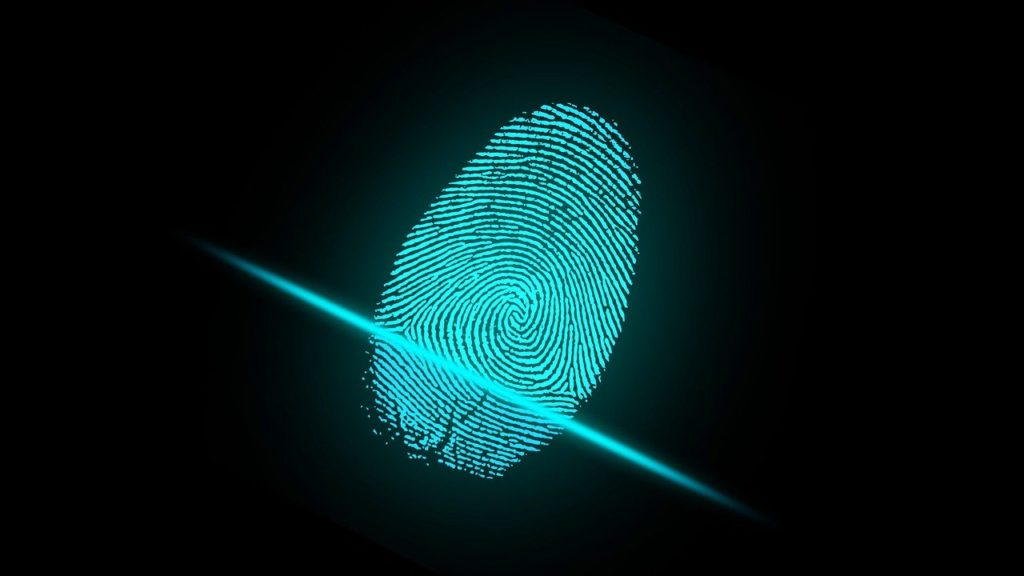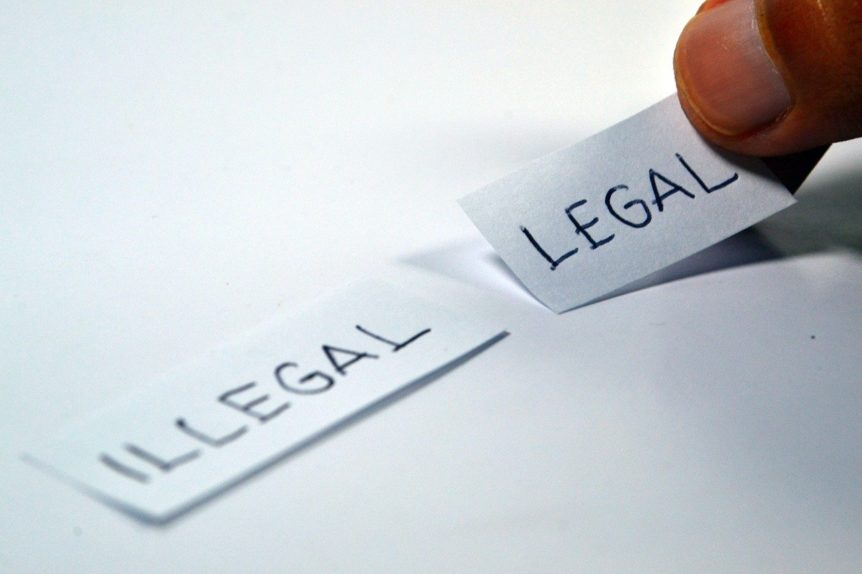Here’s a statistic you might find interesting. More than 105 million Americans have a criminal record. This makes up approximately 33 percent of the entire population – which means there are equally as many people with rap sheets as there are with college diplomas.
If you run a small business or a large company and have a vacancy, there’s a chance that one in every three candidates has a criminal history. The same odds apply if you’re a landlord looking for a tenant for your property.
This is why you need to run comprehensive background checks to determine whether these individuals are the best fit for your company or property. But what is a background check anyway, and are they legal?
This article explores the answers to these questions in depth.
What Is a Background Check?
When you think of a background check, what comes to mind? You’re probably thinking it means looking into someone’s criminal history, right? In reality, it’s so much more than that.
Put simply, a criminal background check is the process through which you find the best candidate for a job opening at your firm or the best tenant for your property by examining not just their criminal records, but also their civil records, employment history, references, education and anything else in their background that’s relevant to your decision-making process.
Each of these forms a critical piece of the puzzle that paints the full picture of the kind of person you’re dealing with. That way, you can make an informed decision on whether or not the individual in question poses a high level of risk to your company or your property and the neighborhood at large.
It verifies that the individual is who they say they are and can do what they claim they can. Doing a comprehensive background check not only safeguards you, your company, its reputation, and other staff members, but it also keeps your clients safe.
What Does a Background Check Show?
If you’ve never run a background check on someone, you might ask, “What exactly shows up on a background check?” Well, the answer to this question depends on the type of background screening that is performed, with each type revealing some aspect of an individual’s personal information. Here are the most common ones.
1. Criminal History Background Check
A criminal history check is a common denominator in nearly every kind of background check there is. It is usually based on the information supplied by the individual like their Social Security Number.
It checks whether they have any misdemeanors or felony convictions in their past, as well as if they have any pending cases or have served any jail time as an adult. An arrest that is pending prosecution may also show up in the check, although, in some instances, arrests that did not lead to convictions may also show up.

If the person had a juvenile conviction that was sealed by the courts, it typically wouldn’t appear in the background check. Any other criminal conviction, however, will appear in the search unless, of course, the state laws of the jurisdiction in which the crime occurred expressly forbid the disclosure of this information after a specific duration has elapsed.
For instance, in Massachusetts, Washington, Montana, California, New Hampshire, Maryland, Kansas, and New York, convictions older than seven years won’t be disclosed in a background check. In Hawaii, convictions that happened 10 years before a background check also won’t show up in the search.
2. Background Check for Employment
These typically dig a little deeper than just getting a record of someone’s criminal history. They also examine and verify the information provided by a candidate concerning their educational background, employment history, education certificates, professional licenses, and awards.
Depending on the nature of the job, some employers may also require pre-employment screenings of the candidates’ driving records to see if they have any driving misdemeanors or felony charges. However, before you embark on running a background check on your candidates, you should be aware of the federal and state limits placed on what can be reported on these checks.

For instance, if the candidate that you’re considering for a job is set to earn less than $75,000 annually, information that’s related to government sanctions, civil judgments, as well as, any disciplinary measures related to any professional bodies they might be members of will not show up on an employment background check.
On the other hand, if the candidate is set to earn more than $75,000 a year, all the requested information will appear in the results regardless of how long ago the incident(s) occurred.
3. Fingerprint Background Check
As the name implies, a fingerprint background check employs the use of an individual’s fingerprints in addition to other personal information to find historical records that may be relevant to the person requesting the search. This screening method is the most accurate background check you’ll ever come across since any record that comes up is associated with the specific set of prints used for the process.

The particular information that comes up depends on the nature of the records requested by a potential employer, landlord, or any other interested party, as well as the types of databases used by the screening firm. Most background check companies use the FBI criminal records database, although they may also use other smaller Automated Fingerprint Identification Systems in addition to that of the FBI.
4. FBI Background Check
These are often used to screen candidates seeking to work with federal government agencies and companies that work with or for them. It is quite comprehensive and uncovers every little detail of any interaction an individual may have had with a law enforcement agency. These include any criminal convictions, arrests (those that led to a conviction or indictment, and those that did not), traffic offenses, and even parking tickets.
Individuals have to undergo fingerprinting by a well-known law enforcement agency. The prints are then run against those in the FBI fingerprint identification system. This vast database contains prints collected and consolidated by various immigration departments, law enforcement wings, and even previous employment screenings that the candidates may have been subjected to.

The prints are also run against those in the NCIC, which is short for “National Crime Information Center.” This database has a huge compilation of criminal history data, information on wanted criminals, and even data on terrorists and known sex offenders.
It’s important to note that if a candidate passes the screening process, it does not equate to getting a security clearance. The background check is just the first of many steps in the process, which may also involve interviews with people who know the individual well in addition to a lot more extensive research on them.
5. Level 2 Background Check
If your company is recruiting for positions that involve working with vulnerable people such as children, seniors, or people with disabilities, then you’ll require a different kind of screening process known as a Level 2 background check. These types of checks are also used for people looking to become foster or adoptive parents.
Level 2 background checks examine databases that contain information on arrests, convictions, or incarceration related to violent crimes against children, people with disabilities, senior citizens, or any other individuals that would be classified as vulnerable.
It uncovers all records relating to a person, including those that may have been previously sealed by the courts. So any juvenile convictions and detentions will show up in this search.
6. Tenant Background Check
This is commonly used by landlords and real estate management companies to determine if a potential tenant is who they say they are and if there’s anything in their history that may point to a problem, like a history of evictions. Tenant background checks may vary from one landlord to the next. But, it ultimately boils down to the nature information that they want to see.

Some of the most common ones are:
Criminal History Check
If you’re wondering what having a criminal past has to do with being able to get adequate housing, the answer is – nothing. It doesn’t automatically disqualify someone from being able to rent an apartment, but it is entirely at the discretion of the landlord or property manager to decide if they’re okay with it.
If an individual is denied housing based on their criminal past, the landlord is obligated to communicate this to the potential renter in writing and attach a copy of the criminal history report.
Sex Offender Registry Check
Being a registered sex offender in some states can stand in the way of renting a property. In such states, there are explicit laws regarding sex offenders and landlords. However, in other jurisdictions like California, the law prohibits landlords from discriminating against sex offenders.
Proof of Income Check
A common pet peeve of many landlords is having tenants on their property who continually default on rent. A tenant background check may require the potential renter to provide paycheck stubs or any other relevant proof of income to ensure that they can meet their rent requirements every month.
Credit Report
A credit report forms part of this type of background check to determine if the potential renter is financially responsible. While their credit score won’t be displayed, it will show details on loan accounts and their respective balances, bankruptcies, as well as whether the potential tenant has had civil lawsuits filed against them for defaulting on rent or eviction-related issues.
Employment History Check
A landlord is at liberty to request for a potential tenant’s employment history to determine if they currently have a job, or if they have had any extended periods in their past where they were without one. The landlord is also within their rights to contact the potential renter’s employer to verify that they are responsible and trustworthy.
Reference Check
Before a landlord lets their property to a potential tenant, they will likely request for references from previous landlords or property managers. This would help them verify whether the individual paid their rent on time and how well they took care of the property.
How to Choose the Best Background Check Company
When choosing a firm to screen potential employees or tenants, you need to find one that offers a comprehensive package. You might ask, “What is a comprehensive background check company?”
These are one-stop-shop companies that offer:
- Criminal history checks
- Social security number traces
- Credit reports
- Identity verification
- Education and employment verification
- Drug and health screenings
- References checks
While many companies have self-service portals where you simply upload the information and wait for the results, full-service background check companies do all the footwork for you. They research all the online databases and even make physical trips to the courthouse to check for any criminal history that may not show up in the online search.
They get into the nitty-gritty of a candidate’s background to deliver all the information you might require to determine if they are eligible for a particular role in your company or if they would make a suitable tenant for your property.
Another important question you need to ask when choosing a screening firm is, “How long does a background check take, and can the company deliver within this turnaround time?” Well, it depends on the type of information requested.
Criminal background check results typically take anywhere between 1 and 3 days to compile. Universal background checks, on the other hand, performed by the FBI typically take 2 to 3 minutes when processed through the National Instant Criminal Background Check System (NICS).
But, if it is delayed at the point of sale, then it may take up to 3 business days to get the results. Fingerprint background check results take around 3 days.
Not sure about which company to go with? You can request for a free background check to make sure that they’re offering top-tier services for your company.
Improve Safety and Trust
Are background checks legal? Absolutely!
They are necessary to determine whether an individual is a potential asset or liability to your company or property. They tell you whether the candidates are credible and trustworthy.
So, if you’re in the real estate, financial services, education, construction, or health care industry, this is a critical component of the pre-employment screening process that you can’t afford to overlook.
If you have more legal questions, you can also chat now with a Laws101.com attorney, where you’ll be instantly connected to a lawyer who can give you legal guidance on your specific case or question.
